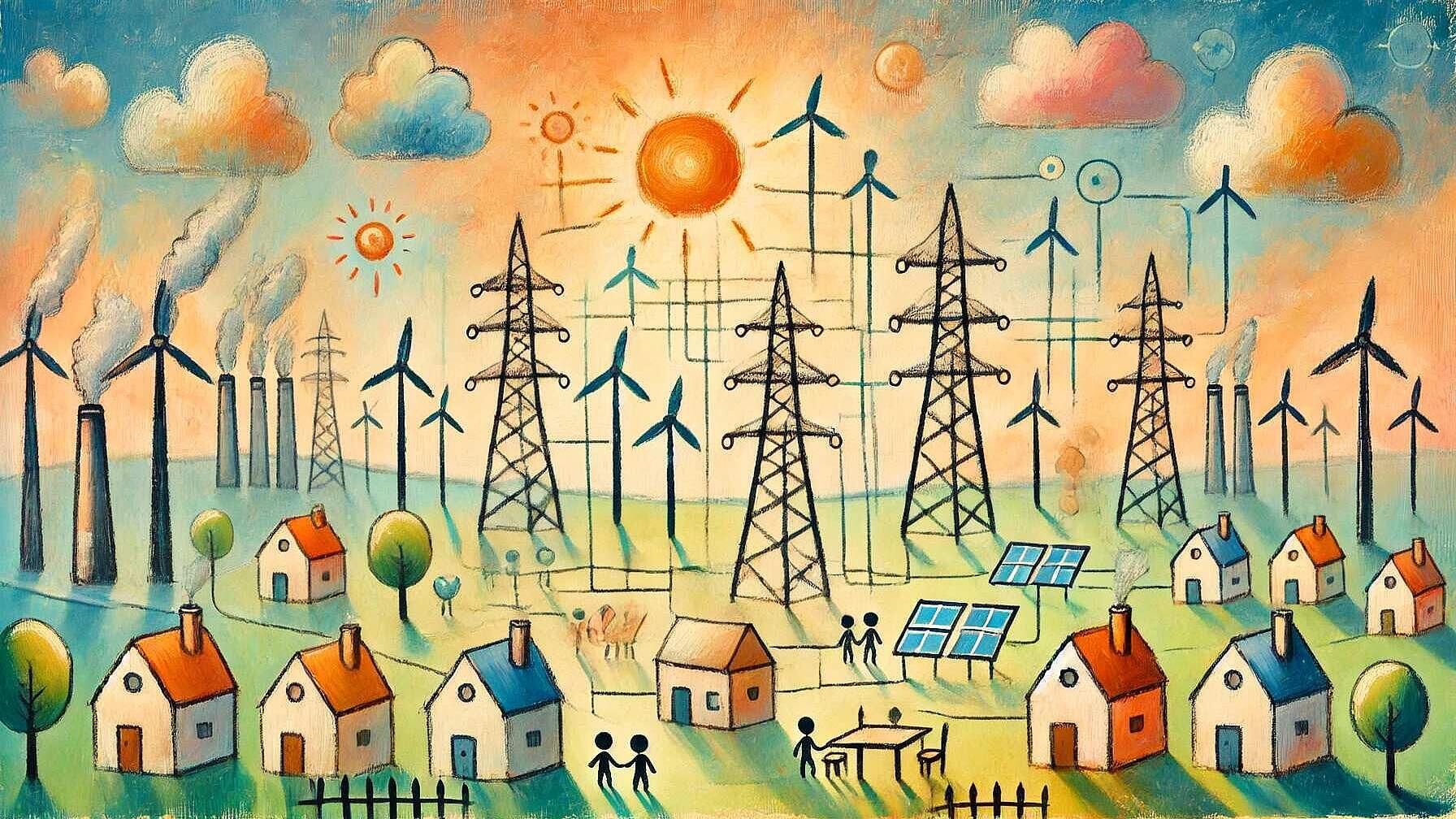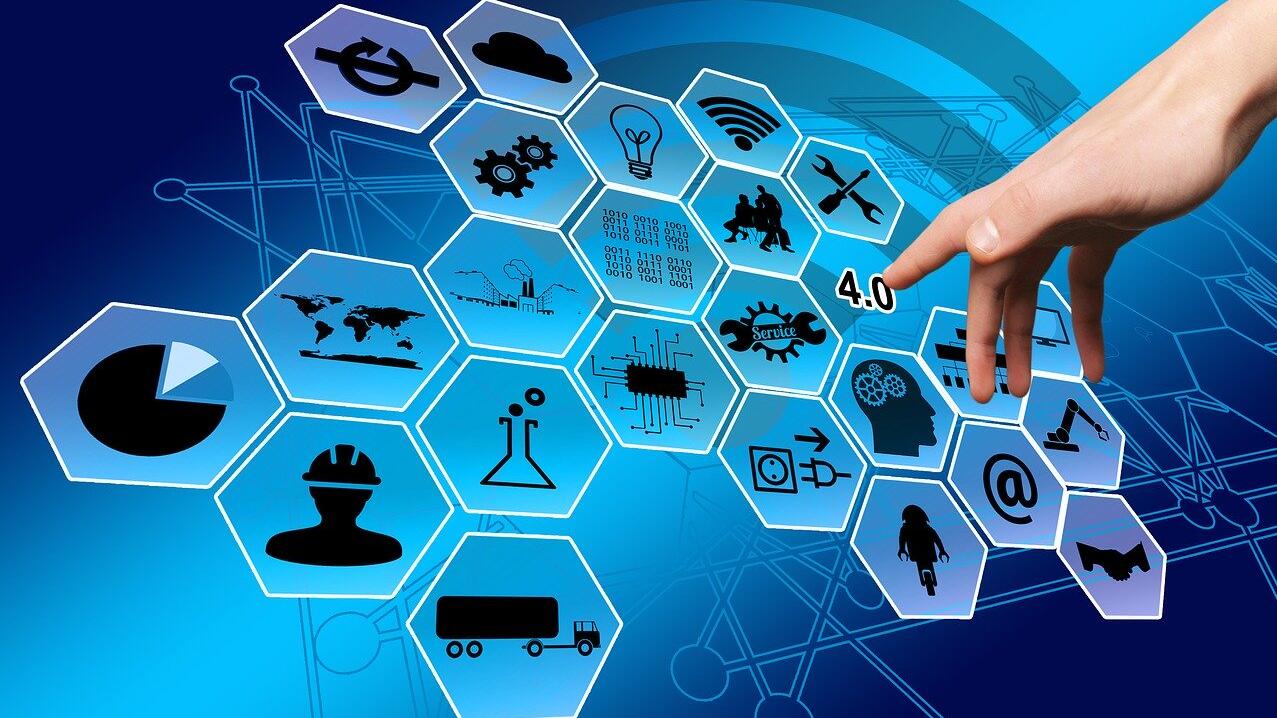 Digitalização
DigitalizaçãoTop 10 EU Initiatives for Digitalizing the Energy System: Transforming Europe’s Energy Landscape
Resumo
The paper examines the European Union's efforts to digitalize the energy sector in pursuit of its 2030 and 2050 climate goals. This involves integrating renewable energy, optimizing grid functionality, improving energy security, and empowering consumers through digitalization. Ten key initiatives by the EU are highlighted:
1. EU Action Plan on Digitalising the Energy System aims to enhance connectivity and security, emphasizing a real-time data exchange framework and energy efficiency through smart grids and 24 key actions.
2. Common European Energy Data Space is under development to securely share energy data, supported by the Digital Europe Programme to facilitate smart grid utilization and energy efficiency.
3. Digital Twin of the European Electricity Grid seeks to simulate and optimize grid performance, especially incorporating fluctuating renewable energy sources, supported by Horizon Europe funding.
4. Smart Energy Expert Group, established to guide digitalization of the energy sector while aligning with climate targets, promotes policy advice and innovation.
5. Interoperability Requirements for Energy Data were set to enable seamless data sharing, critical for customer empowerment and grid efficiency.
6. Code of Conduct for Energy-Smart Appliances to standardize interaction of appliances with the grid, enhancing demand response and flexibility of the energy system.
7. Pan-European Operational Digital Platforms are being developed to support real-time data exchange and renewable integration, funded by the Connecting Europe Facility.
8. Research and Innovation Funding supports digital energy technology through substantial investments from various EU programs.
9. Green Digital Coalition endeavors to create tools to measure digital technologies' environmental impact, aiming to decrease carbon emissions and improve energy conservation.
10. GEDI-EU Platform facilitates collaboration among energy and digital innovators, working to integrate digital solutions in support of the energy transition.
Although the initiatives are designed to work cohesively, challenges such as standardization and the balance between innovation and regulation might impede progress. The EU must thus ensure refined policies and governance to realize an efficient and sustainable digitalized energy system.
Artigo aberto completo
Top 10 EU Initiatives for Digitalizing the Energy System: Transforming Europe’s Energy Landscape
In response to the urgent need for a greener, more efficient energy system, the European Union has taken bold steps to digitalize its energy infrastructure. As Europe moves towards its ambitious 2030 and 2050 climate goals, digital transformation is crucial for integrating renewable energy, optimizing grid management, enhancing energy security, and empowering consumers. The EU has launched a series of key initiatives aimed at creating a smarter, more resilient energy system. This article explores the top 10 current EU initiatives driving this digital transformation, providing an overview of each and evaluating their potential to work cohesively towards a unified energy future.
1. EU Action Plan on Digitalising the Energy System
Launched in October 2022, the EU Action Plan on Digitalising the Energy System is a cornerstone of the European Commission’s strategy to modernize the energy sector. This initiative promotes enhanced connectivity, interoperability, smart grid technologies, and customer empowerment. With 24 key actions outlined in the Communication (COM/2022/552), the Action Plan aims to build a digital framework that allows for real-time data exchange across the energy system.
A core focus of the plan is cybersecurity, ensuring that as digital technologies become integrated into energy infrastructure, vulnerabilities are addressed. The plan also emphasizes energy efficiency, with the goal of reducing energy consumption through smarter, more responsive grids and system.
2. Common European Energy Data Space
Data is the new oil, and the Common European Energy Data Space is designed to ensure that energy data is securely and efficiently shared across the EU. The initiative, currently under development, seeks to establish a governance framework that enables energy stakeholders to access and share data, fostering innovation and improving energy services.
This data space will be supported by the Digital Europe Programme, which funds key projects aimed at deploying the necessary infrastructure to make the energy data space a reality. By harmonizing the way energy data is handled across member states, the EU hopes to unlock the full potential of smart grids, demand-side management, and energy efficiency.
3. Digital Twin of the European Electricity Grid
A "digital twin" of the European electricity grid is an ambitious initiative set to transform how Europe manages its energy networks. By creating a digital replica of the physical electricity grid, operators will be able to simulate, predict, and optimize the performance of the entire system. This initiative is crucial for enhancing the grid's ability to integrate renewable energy sources, such as wind and solar, which fluctuate depending on weather conditions.
Funded by €20 million from the Horizon Europe program in 2023, the digital twin project involves both transmission and distribution system operators. It will provide real-time data to help prevent outages, improve grid efficiency, and support the decarbonization of Europe’s energy sector.
4. Smart Energy Expert Group
Established in September 2023, the Smart Energy Expert Group was created to provide advisory support for the EU’s digital transformation of the energy system. The group consists of key stakeholders, including industry experts, energy companies, and regulators, working together to ensure that digitalization efforts are aligned with the EU’s broader climate and energy goals.
The group’s main objectives include advising on policy, promoting innovation, and ensuring that digitalization projects within the energy sector are implemented effectively. This collaborative approach is expected to streamline initiatives and ensure that the digital transformation of the energy system is both efficient and sustainable.
5. Interoperability Requirements for Energy Data
One of the challenges in digitalizing the energy system is ensuring that different systems, devices, and platforms can communicate and share data seamlessly. In June 2023, the EU adopted an implementing act that sets out interoperability requirements for accessing metering and consumption data. These standards are critical for ensuring that energy data can flow freely across borders and between different systems, empowering consumers and enhancing the efficiency of the grid.
Interoperability is a key enabler of demand-side management and other smart grid technologies. With these requirements in place, energy companies can offer more innovative services, while consumers can make more informed decisions about their energy use.
6. Code of Conduct for Energy-Smart Appliances
Energy-smart appliances, such as smart thermostats and electric vehicle chargers, are an integral part of a digitalized energy system. To ensure that these appliances are able to interact with the grid and participate in demand response programs, the EU has introduced a Code of Conduct for Energy-Smart Appliances. This code promotes interoperability standards that enable devices to adjust their energy consumption based on grid conditions.
By facilitating demand response, smart appliances can help balance supply and demand on the grid, reducing the need for costly and carbon-intensive peaking power plants. This initiative is a crucial step in making Europe’s energy system more flexible and resilient.
7. Pan-European Operational Digital Platforms
To support the development of digital infrastructure, the EU has launched the Pan-European Operational Digital Platforms initiative. This project provides funding and support for feasibility studies aimed at creating operational digital platforms that will help manage Europe’s energy system more effectively. These platforms will enable real-time data exchange, facilitate cross-border energy flows, and support the integration of renewables.
Funded under the Connecting Europe Facility, this initiative is designed to ensure that Europe’s energy networks can keep pace with the growing demand for clean, digital technologies.
8. Research and Innovation Funding
The EU has made significant financial commitments to support research and innovation in digital energy technologies. Through programs like Digital Europe, LIFE, the cohesion policy, and Horizon Europe, billions of euros are being invested in projects that aim to accelerate the development and deployment of digital solutions in the energy sector.
These funds support everything from smart grid technologies and energy storage solutions to innovative digital tools for energy efficiency. By fostering collaboration between the digital and energy sectors, the EU is driving innovation and helping Europe maintain its leadership in the clean energy transition.
9. Green Digital Coalition
The Green Digital Coalition is a collaborative initiative that brings together digital and energy companies to develop tools for measuring the impact of digital technologies on the environment. The coalition focuses on ensuring that digital solutions not only support the clean energy transition but also contribute to broader sustainability goals.
By developing standardized metrics for assessing the environmental impact of digital technologies, the Green Digital Coalition helps ensure that the digitalization of the energy system contributes to reducing carbon emissions and improving energy efficiency.
10. GEDI-EU Platform
The GEDI-EU Platform is a pan-European initiative that brings together energy and digital innovators from across the EU. This platform aims to facilitate collaboration and knowledge-sharing between different stakeholders, ensuring that digital solutions are developed and deployed in a way that supports the energy transition.
The platform also serves as a hub for innovation, providing funding and support for startups and other innovators working at the intersection of digital and energy technologies. By fostering collaboration, the GEDI-EU Platform is helping to accelerate the pace of digital transformation in the energy sector【6†source】.
Conclusion: Cohesion or Contradictions?
The 10 initiatives outlined above represent a comprehensive and multifaceted approach to digitalizing Europe’s energy system. Each initiative addresses a different aspect of the digital transformation, from data interoperability and cybersecurity to smart appliances and grid management. In theory, these initiatives should work together to create a seamless, integrated energy system that is both efficient and sustainable.
However, there are potential areas of friction. For instance, the rapid pace of digitalization may lead to challenges in standardization, particularly with respect to interoperability. While the EU has made strides in establishing common standards, different regions and sectors may still encounter difficulties in aligning their systems. Moreover, the balance between innovation and regulation could become a point of tension. For example, while the Green Digital Coalition focuses on sustainability, rapid digital innovation may sometimes prioritize speed over environmental considerations.
Overall, while these initiatives appear to be well-coordinated, their success will depend on effective governance and collaboration between stakeholders. The EU must continue to refine its digital energy policies to ensure that these initiatives work in harmony, avoiding contradictions that could hinder the progress of Europe’s energy transition.
Sources
[1] https://digital-strategy.ec.europa.eu/en/policies/digitalisation-energy
[2] https://www.epc.eu/content/PDF/2023/Vodafone_DP_FINAL.pdf
[3] https://www.iea.org/energy-system/decarbonisation-enablers/digitalisation
[4] https://www.unep.org/topics/energy/digitalization/digitalization-energy
[8] https://www.epc.eu/en/projects/Digitalisation-for-a-clean-energy-transition~49d464



